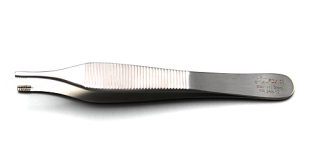Learn all about heavy feelings of head and numbness and about the causes and remedies to get rid of it.
When the head feels heavy and tired, it can be a struggle to get through the day. Heavy head may be associated with vertigo, dizziness, mental confusion, and numbness and the feeling of tightness or pressure in your head.
Many people complain that their head feels heavy and that heavy head feeling can be frustrating.
In fact, up to 90% of individuals will suffer from this feeling at some point in their life. Some people report that head feels detached from the body and they can barely hold their head up, while others say it feels like a heavy, tight band around their head.
Muscle tension in the neck, shoulders, or upper back from either physical work or emotional stress can produce head numbness. The pressure produced by the affected muscles irritates nerves that serve the head and scalp, causing numbness.
Sometimes people sleep or watch television while lying on the back and with the head twisted to one side facing one shoulder. At times, blood flow is restricted through the artery in the neck, decreasing circulation to the head and causing head numbness. Numbness can also occur from propping the temple of the head against a wrist or arm, restricting the blood flow until the position is changed.
Just about any over-the-counter (OTC) pain reliever can offer relief for non-migraine headaches, also known as tension headaches, says Jack M. Rozental, MD, PhD, a migraine specialist at Northwestern Memorial Hospital in Chicago. Medications that contain only one drug (acetaminophen, ibuprofen, naproxen, or aspirin) are an effective headache treatment, than those that include a combination of aspirin, acetaminophen, and caffeine.

Head feels heavy, numb or hurts
When your head feels heavy and tight, that’s a sign that there is a health problem that causes discomfort, and there are several that can cause the feeling of heavy head, including hormonal disorders. However, hormonal disorders often not their fault, as this uncomfortable feeling can also be caused by damage to the muscles or even your brain. Head numbness, or skin numbness medically described as head paresthesia, is experienced as a disturbing lack of sensation in the head or portions of the head and face. This numbness results from a variety of causes, some traumatic and others due to infection.
Why does my head hurt?
A heavy feeling head is a very common condition, but also can be caused by a variety of different factors, so it is a particularly irritating to the treatment condition. Head pain, or headaches, are highly common and can be caused by numerous conditions. It can strike at any time, and can cause you to feel overwhelmed, incapacitated, and even sick right down to your stomach.
Heavy Feelings, Head Pressure, Brain, Fog or Dizziness
Generally, a heavy head feeling does not occur by itself. Often, there are many other symptoms experienced with heaviness in the head. Maybe your head feels foggy, or maybe you feel pressure in your head. Although these two symptoms are opposite they can occur both with a heavy head. When brain fog and foggy head are caused by an active stress response, calming yourself down and containing your anxious behavior will bring an end to the active stress response. Irritation and pressure on the cervical nerves as well as traumatic injury to the head causing blood loss, contributes to the loss of sensation in the scalp, face and head.
Home Remedies for Dizziness
Some home remedies for dizziness are:

- Deep breathing is one of the best ways to deal with dizziness. It will help provide an adequate amount of oxygen to the brain, which in turn will relax the nervous system and reduce dizziness.
- Dehydration is a common cause of dizziness. This can be due to not drinking water for a long time or failing to rehydrate your body during and after exercise.
- Dizziness can be caused due to a low blood sugar level, especially for diabetics. In addition, hunger can make you more prone to dizziness. So, when dizziness hits, try eating something. In fact, it’s a good idea to avoid remaining hungry for long periods of time if you are prone to dizziness.
- Ginger is a time-tested remedy for dizziness. It stimulates blood flow to the brain and other parts of the body, which helps reduce the intensity of dizziness.
- Another excellent remedy for dizziness is lemon. The vitamin C in lemon boosts the immune system and helps the body fight illness. In addition, several other nutrients in lemon make it a natural energizing agent. It can quickly hydrate the body to keep you feeling energized and refreshed.
- Indian gooseberry, also known as amla, is a popular Ayurvedic remedy for dizziness. Amla is a rich source of vitamins A and C that boost your immunity, improve blood circulation and help treat and prevent dizziness.
- Due to the natural sugars in honey, it can instantly boost your energy level and prevent dizziness. Moreover, honey can prevent low blood sugar, one of the common causes of dizziness.
- The herb ginkgo biloba is an effective home cure for dizziness. It helps improve blood flow to the brain to stop or prevent dizziness. This herb helps in treating tinnitus, which can also cause dizziness.
- Another good herb to treat dizziness is feverfew. It can also treat accompanying symptoms like headaches, nausea and vomiting. It also improves blood circulation.
- Eating a healthy diet can help prevent dizziness by eliminating many of the conditions that contribute to it. You can prevent dizziness related to anemia, low blood pressure and low blood sugar by eating foods high in iron, vitamin A, folic acid and fiber.
- Sit or lie down immediately when you feel dizzy.
- Incorporate some sort of physical exercises in your daily life to improve blood circulation throughout your body and prevent dizziness.
 Health & Care Information
Health & Care Information 


I am genuinely pleased to read this weblog posts which carries lots of
helpful facts, thanks for providing these kinds of information.